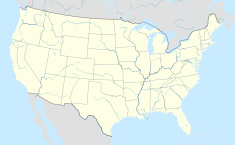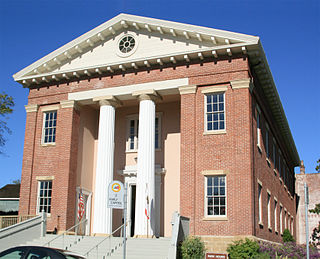
Benicia is a waterside city in Solano County, California, located in the North Bay region of the San Francisco Bay Area. It served as the capital of California for nearly thirteen months from 1853 to 1854. The population was 26,997 at the 2010 United States Census. The city is located along the north bank of the Carquinez Strait. Benicia is just east of Vallejo and across the strait from Martinez. Steve Young, elected in November 2020, is the mayor.

Lyman Beecher was a Presbyterian minister, and the father of 13 children, many of whom became writers or ministers, including Harriet Beecher Stowe, Henry Ward Beecher, Charles Beecher, Edward Beecher, Isabella Beecher Hooker, Catharine Beecher, and Thomas K. Beecher.

Mills College at Northeastern University in Oakland, California is part of Northeastern University's global university system. Mills College was founded as the Young Ladies Seminary in 1852 in Benicia, California; it was relocated to Oakland in 1871 and became the first women's college west of the Rockies. In 2022, it merged with Northeastern University following several years of alleged financial difficulties.

Susan Tolman Mills was the co-founder of Mills College.

James Lloyd Breck was a priest, educator, and missionary of the Episcopal Church in the United States of America.
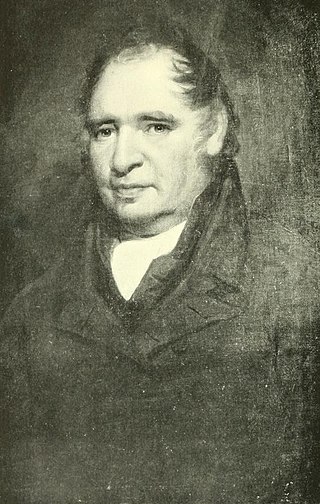
Samuel Blatchford was the first president of Rensselaer Polytechnic Institute.

Rev. James McDonald Chaney was a minister of the Lafayette Presbytery of the Presbyterian Church in the United States. He had been an ordained minister for 53 years.

William Patterson Alexander was an American missionary to the Kingdom of Hawaii. His family continued to influence the history of Hawaii.

The First Presbyterian Church in Vallejo is a historic church in Vallejo, California.

Benicia Unified School District is a public school district based in Benicia, a city in Solano County, California. It operates two high schools, a middle school and four elementary schools. The district had approximately 4,900 students enrolled in the 2018–2019 school year.

First Presbyterian Church is a historic Presbyterian congregation in Hattiesburg, Mississippi, founded in 1882 by Rev. A. B. Coit. It was the first church in the town and predated Hattiesburg's own incorporation by two years. In 1973 it left the Presbyterian Church in the United States to become a charter member of the more theologically conservative Presbyterian Church in America.
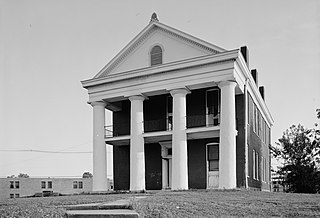
Oakland College was a private college near Rodney, Mississippi. Founded by Dr. Jeremiah Chamberlain in 1830, the school was affiliated with the Presbyterian Church. It closed during Reconstruction, and some of its former campus is now part of the Alcorn State University Historic District.
Hubbard Winslow was an American minister and author.

Congregationalism in the United States consists of Protestant churches in the Reformed tradition that have a congregational form of church government and trace their origins mainly to Puritan settlers of colonial New England. Congregational churches in other parts of the world are often related to these in the United States due to American missionary activities.

Samantha Knox Condit was an American teacher and Presbyterian missionary, working in the Chinese community of San Francisco, California and surroundings.

Benjamin Fay Mills was an American evangelist preacher, vegetarianism activist and writer.
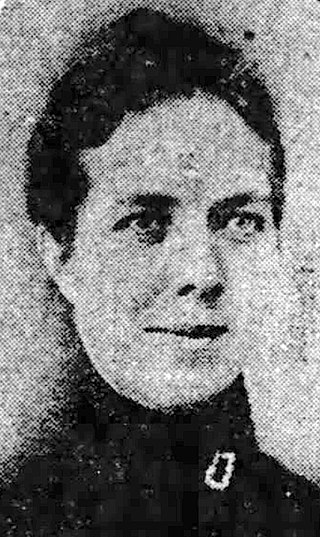
Mary Alice Fish Moffett was an American Presbyterian medical missionary in Korea, with her husband Samuel A. Moffett.

Westminster Presbyterian Church is in the Jefferson Park neighborhood of Los Angeles, California. Westminster Presbyterian Church is a member of the Presbyterian Church (U.S.A.), the Synod of Southern California and Hawaii and Pacific Presbytery. The congregation, established in 1904, is one of the oldest African American Presbyterian churches in California and west of the Mississippi River.

Sacramento First Congregational Church, was the first church in Sacramento, California founded in 1849. The site of the First Congregational Church building is a California Historical Landmark No. 612 listed on May 22, 1957. The first church in Sacramento was founded in 1849 by Rev. Joseph A. Benton. Benton was the pastor from 1849 to 1863. The Church building was at 915 6th Street, built in 1854. A cornerstone ceremony was held on September 21, 1854. Before the church building was built the Church used a small one-room schoolhouse on the northwest corner of I and 3rd Streets, 303 I Street, in Old Sacramento. The attendees at the founding were mostly Swiss and German settlers of Sutter's Fort and New Helvetia. The church grew with the California Gold Rush pioneers coming to California. The site is now an office building on L Street. In 1926 Pioneer Congregational Church built a new church building, its third building, at 2700 L street, that is still in used.

First Presbyterian Church of Benicia was founded on April 15, 1849, at a building in Benicia, California in Solano County, California. The Presbyterian Church of Benicia site is a California Historical Landmark No. 175 listed on March 6, 1935. The First Presbyterian Church of Benicia was the first Protestant church founded in California with a staff pastor. The pastor was Reverend Sylvester Woodbridge Jr., who founded the church in 1849 using a school house. Woodbridge came to California in 1848. First Presbyterian Church built a building that was dedicated on March 9, 1851. Woodbridge was the pastor till 1869, when he moved to San Francisco. The Presbyterian California Gold Rush church ended in 1875. The Church became a One-room school and most the members moved to the First Congregational Church of Benicia founded in 1865. Later the church-school building became an Episcopal Church. The Episcopal Church soon built a larger church. The 1851 church was remove and the land became Benicia City Park.



